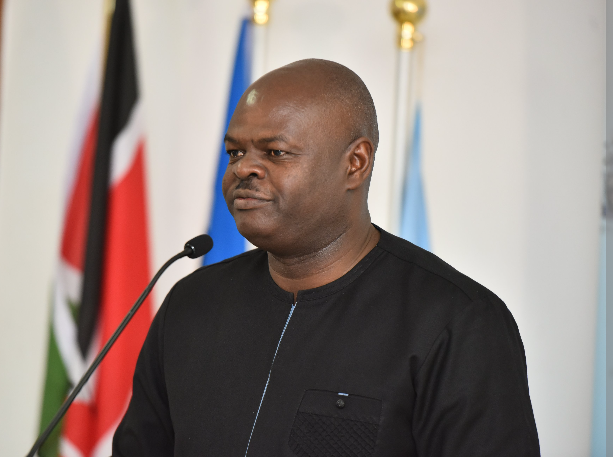Kenya’s Employment and Labour Relations Court issued a landmark ruling, blocking the University of Nairobi (UoN) from filling 24 senior management positions.
This decision followed a petition by Julius Mutemi, a concerned stakeholder, who argued that the university council lacked the legal authority to advertise and fill these roles without proper authorization.
The court’s ruling underscored the importance of adhering to statutory governance protocols in public institutions, spotlighting critical governance challenges within the University of Nairobi.
This ruling holds particular significance for the University Academic Staff Union (UASU), which had openly opposed the establishment of certain positions, including the creation of a Chief Operating Officer (COO) role.
UASU argued that such restructuring was in direct violation of the university’s established charter and would dilute the university’s academic focus. Justice Byram Ongaya, presiding over the case, ruled in favor of UASU.
He emphasized that any modifications to senior management positions within a public institution like UoN must align with existing legal and governance frameworks.
The court’s intervention has brought to the forefront underlying governance tensions at UoN, particularly the ongoing power struggle between the university council and Vice-Chancellor Stephen Kiama.
Former Vice-Chancellor Kiama took a sudden leave shortly before the court ruling, only to return shortly afterward.
This move fueled speculation, with many interpreting it as an attempt to assert his authority over the institution amidst the governance controversies.
These internal disputes have not only drawn public scrutiny but have also attracted the attention of the Ethics and Anti-Corruption Commission (EACC), which has since expressed concern over transparency and procedural adherence within the university’s administrative framework.
The EACC’s involvement emphasizes the growing call for accountability and ethical governance within Kenya’s public universities.
Institutions like UoN operate under strict charters and governance protocols intended to safeguard academic integrity and ensure the efficient management of public resources.
The court’s ruling halting the recruitment process at UoN serves as a crucial reminder that university councils must operate within these parameters, particularly when it comes to significant structural or management changes.
This case is likely to have implications beyond UoN, potentially setting a precedent for other public universities in Kenya facing similar governance and administrative challenges.
The ruling reinforces the idea that any restructuring or redefinition of roles within public universities must go through proper legal channels and respect the institutional charter.
This legal precedent could influence how other universities handle governance issues, particularly those related to administrative autonomy and council authority.
This case highlights broader issues in Kenya’s higher education sector, where governance struggles are increasingly common.
Many public universities are grappling with similar challenges, including financial constraints, management disputes, and questions over council authority.
The court’s decision in favor of UASU sends a clear message to university councils across the country governance protocols must be respected, and any attempts to alter senior management structures without adherence to legal requirements will face judicial scrutiny.
This ruling may also empower academic staff unions, like UASU, to challenge administrative decisions that they believe could undermine academic integrity or shift focus away from education.
The emphasis on following governance charters and statutory procedures is not just a legal formality; it is essential for preserving the academic mission of public universities and ensuring they serve their intended purpose.
As public institutions, universities hold a unique role in society, and any power struggles or governance conflicts can directly impact their reputation and functionality.
The Employment and Labour Relations Court’s decision to block the University of Nairobi from filling its senior management positions underscores the critical importance of governance adherence in public institutions.
By halting the recruitment process, the court reinforced the need for procedural compliance, especially in restructuring decisions.
This case serves as a reminder to public universities across Kenya of the importance of following established legal frameworks, fostering transparency, and maintaining accountability in governance.
The outcome may not only impact UoN but could also shape the governance structure in other public universities facing similar challenges.





















Add Comment